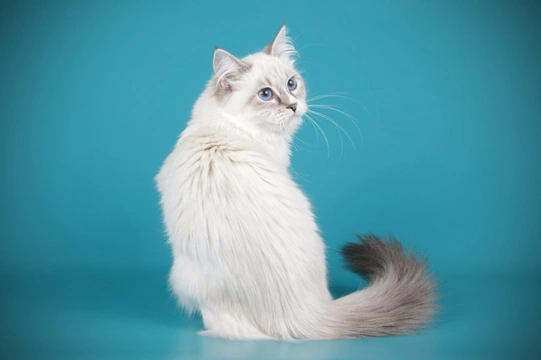
How Does Vitamin B12 Help Cats?
If you notice that your cat is more lethargic than usual and not that interested in their food, then you may need to check out if they are getting enough vitamin B12 in their diet. Cats love to sleep and will spend most of their days curled up in a nice warm place snoozing away. However, when they do wake up – they are lively, they're hungry and they want to play so when their behaviour changes, it can be quite worrying and this is particularly true if they are off their food.
When it comes to their diet, vitamin B12 (scientific name cobalamin) plays a crucial role in your pet's health and in younger cats, in their growth so it's really important to make sure they are getting enough. Vitamin B12 is water soluble, it is excreted out in a cat's urine which is why it is important to ensure your pet gets enough in their daily diet. However, a healthy cat may store the vitamin in their body but when their immune system is compromised they will not be able to do so.
Why Some Cats May Have a Vitamin B12 Deficiency
There could be several reasons for a cat to suffer a B12 deficiency with some breeds having certain genetic disorders that prevents them from absorbing it. However, there are other reasons which include the following:
- Gastrointestinal illnesses
- Inflammatory bowel disease (IBD)
- Diabetes
- Hyperthyroidism
All these conditions see cats suffering from a deficiency in vitamin B12. However, nobody really knows why B12 deficiency actually occurs in cats but if you suspect there may be something wrong, you should contact your vet immediately so they can give your pet a thorough examination and take some blood tests.
Symptoms of B12 Deficiency to Watch Out For
The usual signs that your cat may be suffering from a vitamin B12 deficiency include the following:
- Lethargy
- Vomiting
- Diarrhoea
Occasionally cats with a B12 deficiency may also have difficulty in walking or jumping and may show a little weakness in their back ends. A vet would take some blood tests to determine red and white blood cell counts which would confirm whether the levels are low or abnormal.
Boosting Your Cat's Intake of Vitamin B12
One of the easiest ways of ensuring your cat gets a boost of vitamin B12 in their diet is to feed them some fresh meat and in particular liver which is high in B12. You can also buy oral supplements specifically formulated for cats which you can add to their daily diet. However, you need to bear in mind that oral supplements and food that is high in B12 will not boost the level of the vitamin needed in cats that suffer from any sort of gastrointestinal disease or any congenital condition.
Cats suffering from these conditions are not able to absorb B12 into their bodies. A vet would recommend that your pet is given B12 injections in order to boost their intake of this important vitamin when it is necessary to do so and the chances are that your cat would need to be given these injections throughout their lives.
Subcutaneous Fluids Offer an Easy Way to Increase B12 Intake
If your cat has been diagnosed with a chronic kidney disease, then their levels of B12 will be low and as such a vet could recommend they be given subcutaneous fluids as a way to boost their intake of the vitamin. Cats with certain conditions are often given subcutaneous fluids to prevent dehydration and this offers a safe a quick route to get essential vitamin B12 into their bodies via their digestive tracts. A vet would need to keep an eye on your cat when they do receive a boost of vitamin B12 just to make sure they respond well to it.
Conditions Which May Result in Vitamin B12 Deficiency in Cats
Other conditions that typically see cats suffering from a vitamin B12 deficiency include the following:
- Kidney disease
- Liver disease
- Poor condition – caused by stress or poor diet or other
- Cancer treatments
- Exocrine pancreatic insufficiency
Cats, when given a boost of vitamin B12, regain their appetites quickly which is really important when they are sick and need to take in as many calories as they to stay strong can to fight off any infection. Vets have noticed that when a cat is given B12 injection, it stimulates their appetites. If the injections are stopped, cats lose their appetites again which is why vets normally recommend that cats that are off their food should be given a B12 jab every week or sometimes every two weeks.
If your cat is undergoing any sort of cancer treatment and in particular chemotherapy, they will typically lose their appetites when they need to keep their strength up the most. By administering vitamin B12 shots, it gives your cat a fighting chance as they regain their appetites which in turn helps them improve their immune systems.
Conclusion
If you think your cat may be suffering from a vitamin B12 deficiency and find they are lethargic, off their food and not behaving as they normally do, then you should make an appointment and take them to the vet. A vet would be able to take blood tests and carry out other important tests to determine what is wrong. If they find your cat does have a B12 deficiency, they would try to find out the route cause and then recommend the best course of treatment to boost your cats levels of vitamin B12. You would also need to take a close look at their food to ensure they are in fact, getting enough of the vitamin in their daily diets and discuss this with your vet to see if you should be adding a B12 supplement to it.



